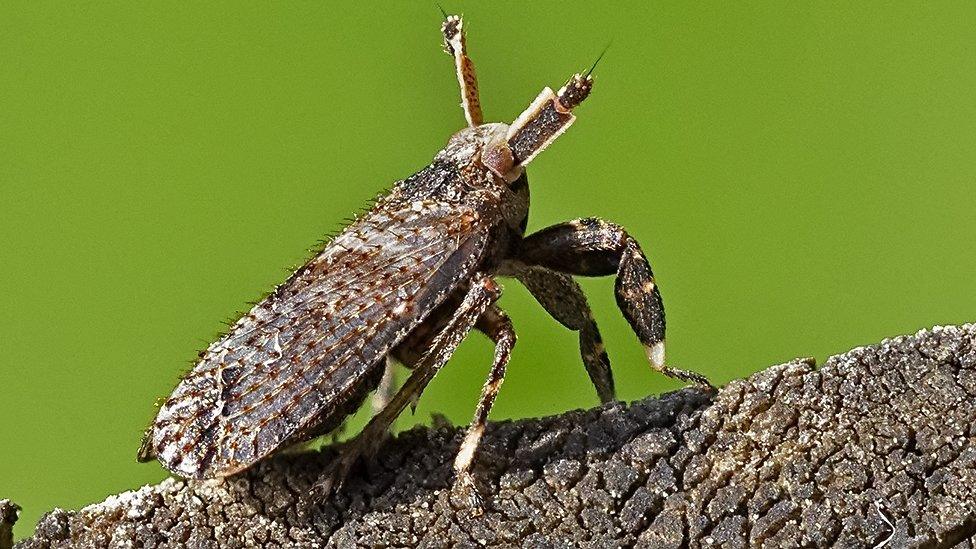Wildlife Trust hopes to raise £150k for dyke near Cambridge
- Published
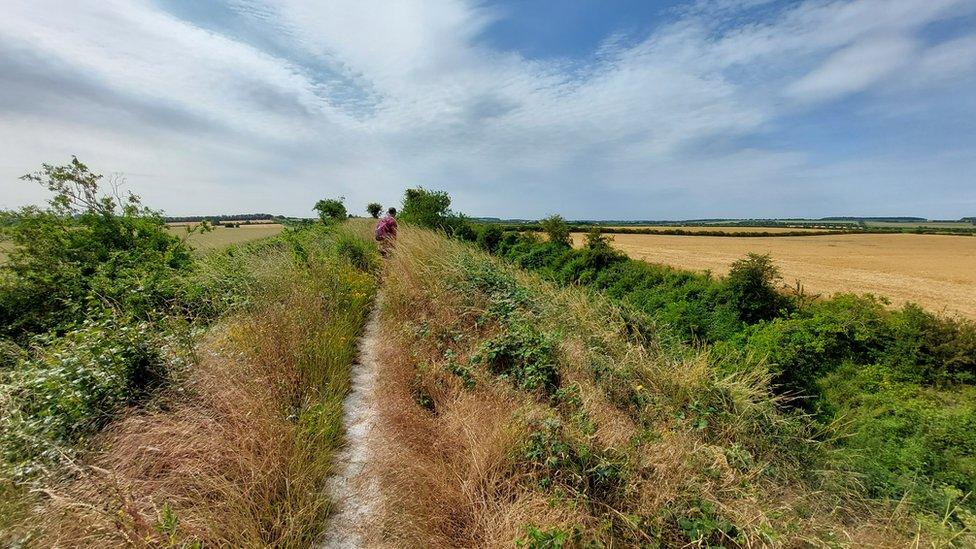
Fleam Dyke is a three-mile long ditch with a seven-metre high earthbank on one side
A wildlife trust is hoping to raise £150,000 to buy a dyke it hopes to rejuvenate.
Fleam Dyke, near Cambridge, was dug out by Anglo-Saxon settlers in the fourth or fifth centuries.
Nic Shelton from the Wildlife Trust for Beds, Cambs and Northants, external said they wanted to restore this "scar on the landscape", between Fulbourn and Balsham, to its "former glory".
Its appeal for donations ends this week.
If it bought the land, the trust said it would sow wildflowers on land next to the dyke to restore it from farmland.
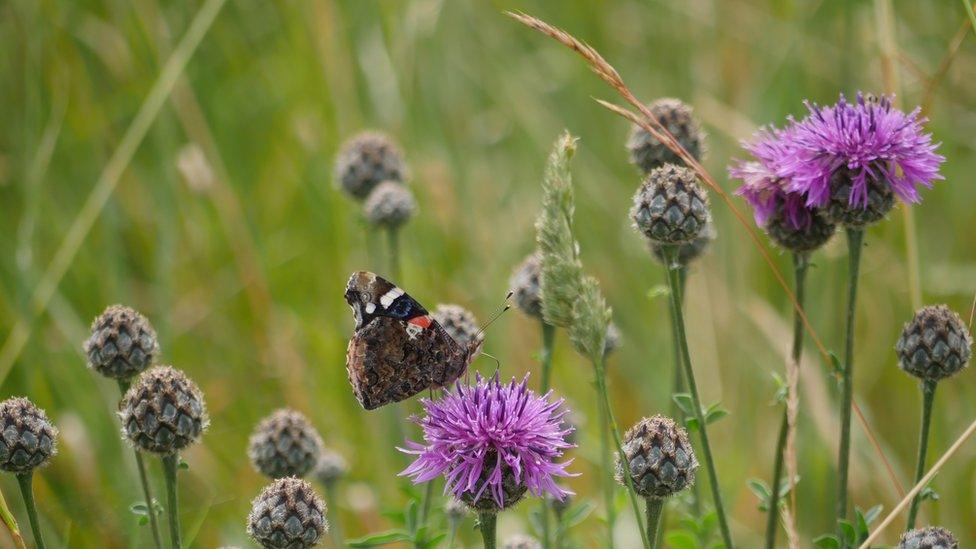
If it bought the land, the trust said it would sow wildflowers on what is currently farmland
Fleam Dyke is three miles (4.8km) long with an earthbank seven metres high and a ditch on one side.
It runs beside Mutlow Hill, which was a Bronze Age burial barrow dated to 2,000BC where eight funeral urns and beads from the Mediterranean have been found.
The dyke has become "difficult" to manage for its current owners and "overgrown", Mr Shelton said.
"We absolutely have an obligation to protect these places for generations to come," he said.
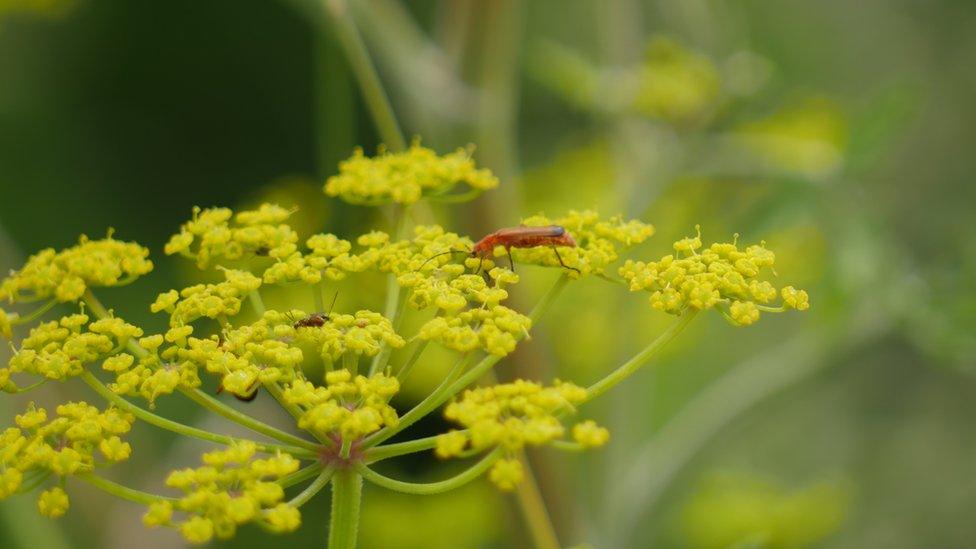
Nic Shelton said the chalk landscape was "fantastic" for butterflies and many other insects that live on wildflowers
The donations would go towards buying part of dyke and 2.8 acres (7.6 hectares) of land next to it to widen the area and help the spread of wildflowers, he said.
"We've had an amazing response, from people locally and further afield," said Mr Shelton.
"Our job is to create space that is for nature... and making that accessible for people to enjoy, understand and learn about nature."

Follow East of England news on Facebook, external, Instagram, external and X, external. Got a story? Email eastofenglandnews@bbc.co.uk, external or WhatsApp us on 0800 169 1830
- Published27 September 2023
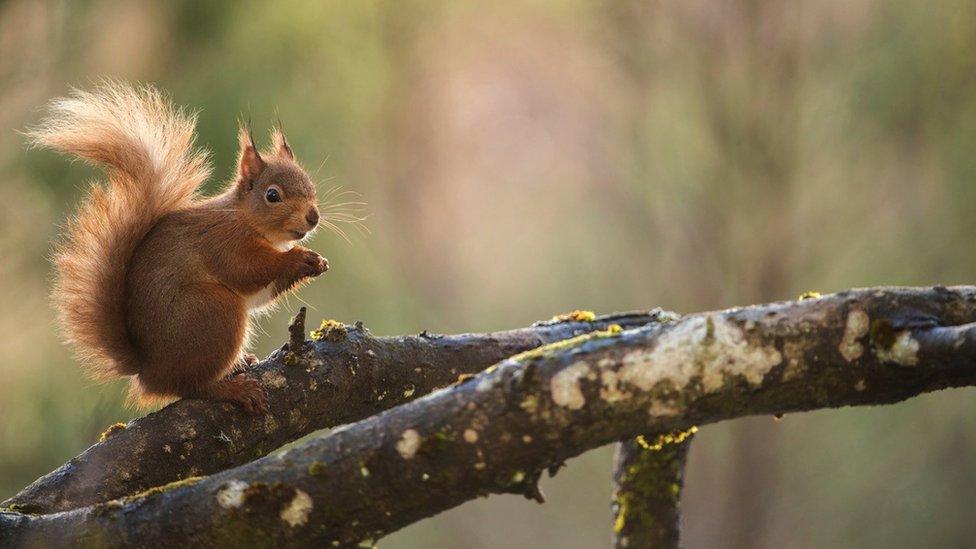
- Published18 September 2023
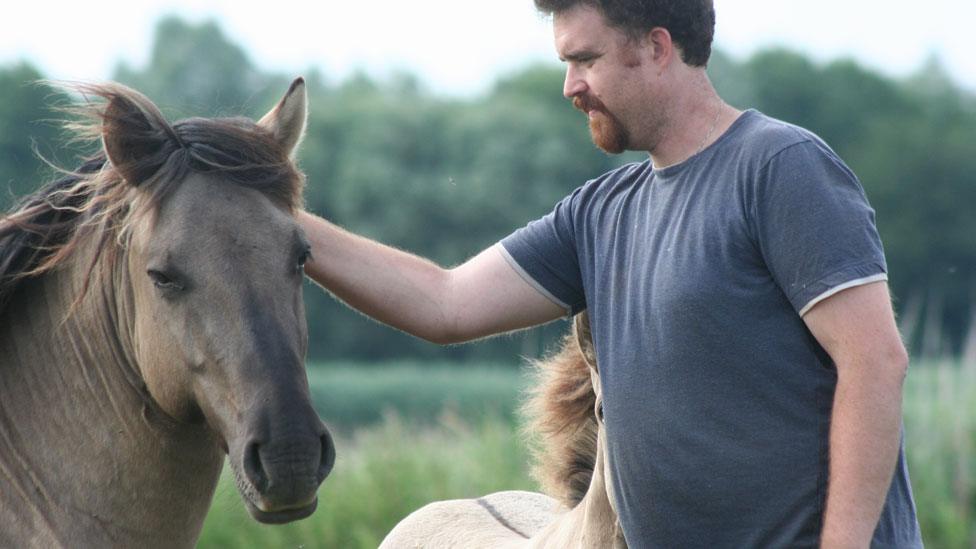
- Published31 May 2020
